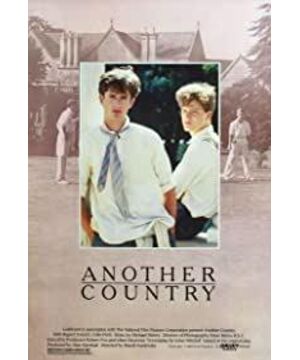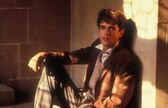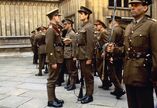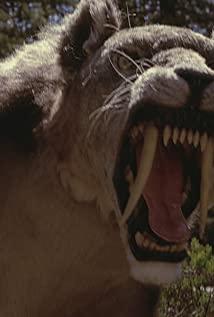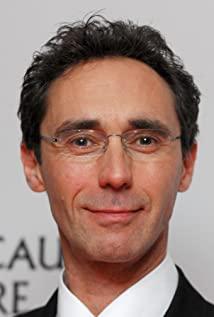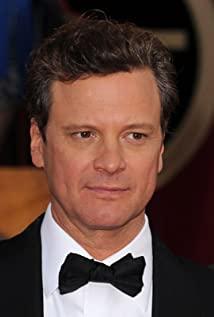The newly appointed official sat at the table and began to look through the thick documents. Gradually, an expression of disbelief appeared on his face. A thick dossier shows the fact that four British spies have infiltrated the highest level, and they have notified the Soviet Union of Churchill, Roosevelt, or Truman's latest developments. The document was clearly marked with the words "Submit Beria and Stalin." No bureaucracy dared to delay these documents. These four British spies are too important, and the information they deliver has always been so reliable. The expressions of the KGB officials gradually changed from astonishment to relief.
These four spies are not the protagonists in the novel, and the official is not a character written by a certain playwright. They are all real. The names of the four spies are Burgess, Blunt, McLin and Philby. They are all from good backgrounds. In the 1930s, four of them attended the famous Trinity College of Cambridge University. At the same time, they are successful and determined KGB spies who have worked for the Soviet Union for more than 30 years. One of them, Kim Philby, worked for the Soviet Union for almost 50 years. Because of his outstanding performance, his portrait even appeared on Soviet stamps.
The four individuals eventually revealed their identities, but strangely, none of them were arrested. Their personalities and professions are different. Among them, Burgess is a gay who likes to talk and drink. Blunt is also gay, specializing in art history, and was knighted for serving as an art adviser to the royal family. The third person, McLean, is a serious diplomat, who fluctuates in sexual orientation. And the fourth one, Philby, who contributed the most to KGB, is a playboy who is extremely good at seducing married women and is known as "the best spy of the 20th century."
Four Cambridge students
"Today, of course, everyone knows that Harold Adrian Russell Philby was a Soviet spy who worked at MI-6 (Military Intelligence Office), a man who had betrayed his own country, and a man who had brought many Western worlds important to reveal that information to the Soviet people today, Philby became a legend - the devil or anti-hero, it depends on your personal judgment. "
- Robert · J · Lan Feier, FBI agents in 1986
on At the end of the 1920s, the predecessor of the KGB, the People's Committee of the Interior decided to begin to infiltrate the British intelligence agencies. Their goal is a group of college students with a bright future and a good background. This group of young people should have the opportunity to work in the British diplomatic service or intelligence agency. If they are firm Marxists or anti-fascists, they will receive special attention. As for the public members of the British Communist Party, the House Committee considers that there is no value to use. On the one hand, these people's actions are too radical and easily attract the attention of the British security department; on the other hand, it is also because most of these young people come from workers' families. , It is unlikely to enter the upper class of the UK in the end. Many years later, this plan proved to be quite thoughtful.
While the four students were studying in Cambridge, they were recruited by the KGB. Two of them, Blunt and Burgess, are members of the "Cambridge Preachers" Association, a very prestigious underground organization in Cambridge in the 1930s. The members are staunch anti-Nazis. It seems that Blunt is the largest and the first to be recruited. In 1933, after he went to Russia, his identity has changed. Because he was an excellent French teacher, and French was a compulsory course for the staff of the British Foreign Service at the time, many people speculated that he was relying on this special identity to silently observe the radical students in Cambridge. Among them, young people who are likely to work in the Ministry of Foreign Affairs will develop into the KGB.
The main character
Anthony Blunt (1907-1983), French professor, art history expert, Queen Elizabeth's art consultant, served as an agent of MI5 during World War II.
Anthony Blunt was born very tall, with an arrogant personality that can even be said to be cold, but he has a charming charm. His grandfather was an English bishop and his father was a parish priest. He is an undisclosed comrade, and once had a romantic relationship with Burgess. During the war, Blunt worked for MI5, and after the war, as an authority on art history, he became an art adviser to the royal family and was knighted in 1956. In 1979, shortly after Thatcher publicly announced that he was a Soviet spy, he was deprived of the title. Died in 1983.
Guy Francis Burgess (1910-1963), BBC announcer, MI6 agent, successively served as Deputy Minister of Foreign Affairs and Secretary of the Minister.
Guy Burgess is the offspring of a naval officer. He is very handsome and charming, but his temperament is a little bit inverted. This may be the result of his long-term alcoholism. Like Blunt, he is also gay. The difference is that he has sex with himself. The orientation is very frank, and he has a few lovers publicly. Although on the surface, he does not have any qualities that a spy should have, but with his charm, he has been admired or favored by many powerful and powerful people, and can effortlessly get information useful to the Soviet Union. .
Donald McLean (1915-1983), British diplomat in Paris, Washington, Cairo and other countries.
Donald McLean, like Blunt, is tall and good-looking, but he lacks Blunt's calmness and determination. His father was a member of parliament and also served as Minister of Education in Baldwin's cabinet. He had a brief relationship with Burgess-it is said that he was seduced by Burgess, but in fact he appeared to be heterosexual. He is a drunkard and was sent back to London for treatment in Cairo because he was too drunk. Shortly after this treatment, he was appointed as the head of the British Foreign Office in the United States.
Harold Russell Philby (also known as Kim Philby, 1912-1988), reporter, MI6 agent.
Philby, nicknamed "Gold", is a chameleon-like character. Some people think he is gentle and a real gentleman, but some people think he is rude. In fact, he is a natural actor who can be played according to different situations. Different roles. As a spy, he has extraordinary talents. From a large amount of intelligence resources, he can discover which are false information deliberately intended to be leaked to the Soviet Union, and which are truly valuable secrets.
Philby's father, Saint John Philby, is an expert on Arab issues, a diplomat, and an adviser to the King of Saudi Arabia. This man has a strange temperament and often criticizes various British policies in public. Some people speculate that his spirit is a little abnormal. When he was a teenager, Kim Philby rarely saw his father, but he admired him very much. Some people analyzed that this might affect the ideological position of Kim Philby in the future.
Unlike Blunt and Burgess, Philby is a recognized playboy, has been married four times, and has countless mistresses. Except for his fourth wife, a Soviet, and his first wife, his second wife and third wife didn’t know that he was a spy, and they both knew him. The husband's wife, in order to follow him, is willing to abandon her original husband.
Philby died in 1988. After his death, he was on a Soviet postage stamp, which introduced his life in Russian. The patience of the
action
KGB is extraordinary. Just like a bottle of good wine that is not old enough, Burgess, Blunt, McLean, and Philby did not work for the Soviet Union soon after they were called up. Gradually, they were assigned tasks to ensure that the plan would not be doubted by the British.
The ages of the activities of the four Cambridge spies were also different. Burgess and McLean worked from 1939 to 1951. Philby worked from 1940 to 1963, and finally fled to the Soviet Union. After his identity was revealed, he continued to work for KGB, as a consultant and secret agent instructor, for almost half a century. Blunt was the latest to be discovered, working secretly from the early 1930s to the end of the 1970s.
Before the war
In the late 1930s, the four spies performed trivial tasks. On the one hand, KGB was worried about their identity being exposed, and on the other hand, it was also the need for KGB to protect itself. They also needed to test these young people to avoid them. Cultivate a double agent.
The four young men did not disappoint KGB. Blunt soon made great achievements in the study of art history. If the senior officials wanted to buy a certain piece of antique furniture or oil painting, they all wanted to listen to his expert opinions first. McLean grew into a young diplomat. Burgess was an openly anti-Nazi on the surface, thus successfully concealing his true political stance.
Philby failed to enter the Ministry of Foreign Affairs and became a reporter for The Times. His first job was to help the Soviet Union and rescue Austrian communists and anti-fascist activists. There, he met his first wife, Liz, who was also a Soviet agent. After leaving Vienna, he went to Spain to cover news about the Spanish Civil War for The Times, but this reporter was different, specializing in news that benefited Franco. In an interview, the car carrying him and several other reporters was hit by artillery fire. Two people were killed, but he was only slightly injured. Because of his outstanding "contribution", Franco awarded him a medal, which further deepened people's impression of Philby's anti-communist stance.
When World War II broke out in 1939, the young diplomat Mikelin and the reporter Philby, who once went to France to interview, both returned to the United Kingdom. Blunt successfully joined MI5. In this way, his duties changed from recruiting newcomers to general The secret file is passed to KGB.
The war years
was the most active period of the four during World War II.
Burgess and Blunt continuously transmitted to the KGB the secret documents of the Allied military strategy and MI.
Mclin worked at the British Embassy in the United States from 1944 to 1948, and he dedicated all the documents communicated between Churchill, Roosevelt and Truman to Stalin. He did not provide the Soviet Union with the technical parameters of the nuclear bomb, but as the British representative of the United States-UK-Canada Trilateral Nuclear Research Committee, he reported to the Soviet Union the progress of nuclear explosion research and leaked the United States' uranium reserves. With these data, Soviet scientists can calculate how many nuclear bombs Americans can make.
Kim Philby performed a series of tasks. During World War II, he revealed to the Soviets that the Nazi code "Enigma" had been decoded by the British. With his position in MI6, he can not only easily deceive the trust of colleagues in the decoding center, but also find the British agents who have been inserted into the KGB early-in fact, he not only knows who these people are, but also many of them. Direct supervisor or mentor.
The Cold War
After the war, Mikelin played a particularly important role for Stalin. He continued to pass on the results of the communication between Truman and Churchill, so that Stalin knew exactly how Britain and the United States planned to occupy Germany and demarcate the borders of Eastern European countries. Stalin benefited from the Yalta Conference, the Potsdam Conference, and the Tehran Conference. In 1948, McLean was transferred to the British Embassy in Egypt.
Philby came to Washington after the war and served as the liaison between MI6 and the CIA. He also kept in touch with the FBI. As a security expert at the British Embassy, he has the right to see all the intelligence shared by the FBI and the United Kingdom. . He and Mikelin worked together to let Stalin know that the United States would not use nuclear weapons in the Korean War.
Burgess served as the host of the BBC for a period of time, presided over a program about parliament, during this period he also made friends with a group of important politicians. Later, he became the secretary of the British Deputy Foreign Minister Hecott McNell, a position of particular significance for the Soviet Union. As Mikenell's secretary, he can regularly send the top diplomatic secrets to KGB-smuggle them out at night, take them into microphotographs, and put them back on Mikenell's desk in the morning.
In addition to continuing to recruit new recruits to play for KGB, Blunt also acts as a liaison officer, providing communication information for Burgess, Philby, and their Soviet superiors.
There is no doubt that among the four Cambridge spies, Philby is the most important. During this period, several Soviet agents rebelled and all hinted that there was an insider in the British intelligence agency. Fortunately, Philby was arranged to deal with this type of case, so it can easily transfer people's suspected targets. One of the Soviet agents, Volkov, had negotiated terms with the British government and promised to give out the exact list of rapes after he got the money, and Philby went to the Middle East to negotiate with Volkov. Representative of British Intelligence Opportunities. As a result, the agent is said to have disappeared. Philby reported that he had not been able to find Volkov, and the crisis was resolved in this way. If the identities of Burgess and McLean were not revealed later, Philby may still be in the same position in MI6. In fact, some biographers believe that Philby will be a popular candidate for the head of MI6. Not long before his death, Philby explained his luck like this:
"Really, in my life, my luck has been surprisingly good. At many extremely dangerous moments, I thought, it's over, there is no way to escape. Suddenly a ray of sunshine came in, and I found a way out again. I can’t describe how lucky I am to live.”
Betrayal
The story of Burgess and McLean’s defection and Philby’s identity being exposed has been photographed. Into a movie. However, before the files of KGB, FBI, and MI6 are completely declassified, the stories circulating in the market may not be completely accurate. The following story may be closer to the facts at the time.
In 1949, FBI agent Robert Langfell, who was responsible for dealing with Soviet spies, made an amazing discovery. He and several codebreakers discovered that between 1944 and 1946, a member of the British Embassy continued to Send information to KGB. The Englishman's code name is "Homer". After a period of investigation, they found three to four possible candidates for "Homer", one of whom was Mike Lin.
Not long after the Lanfell investigation began, Philby went to work in Washington and served as the messenger of communications between the British military intelligence department and the US CIA, FBI, and NSA. In the decoding of the Soviet intelligence, he speculated that Mikelin was probably Homer, and he later confirmed this from his KGB boss. On the other hand, he also knows that Langfell’s investigation is proceeding smoothly. It has been confirmed that the news was sent from New York. During his tenure in Washington, Mikelin would regularly travel to New York. The public reason was to visit him there. Wife and children.
Philby's pressure began to increase day by day. If Mikelin's identity as a Soviet spy is exposed, once he confesses, it is very likely that other Cambridge spies will be implicated. Even if he gritted his teeth in the trial, Philby could also be affected by their relationship in Cambridge.
At the same time, Burgess is a bomb that will explode at an unknown time. At this time, he was working at the British Embassy in the United States. His alcoholism became worse and he became more and more insecure in his private life. It is hard to imagine why MI6 would still entrust him with a heavy responsibility. Before he went to work in the United States, his old boss, Mike Nell, reminded him to avoid provoking three things, "racial issues, contact with militant organizations, and open homosexuality." Burgess blurted out, "Oh, what do you mean, I don't want to mess with Paul Robertson?" As everyone knows, Robertson is a black American singer, and also a well-known anti-racist and socialist. Only Burgess, who drank upside down, could be so unabashed. In order to control this man, Philby simply pulled Burgess under his nose and let him live in his Washington home. Even so, Burgess is still unreasonable. At a family banquet held by Philby, Burgess humiliated the wife of a senior CIA official in public.
Taking into account Mikelin's fragile character, Philby believed that the other party would almost certainly confess in the trial, so he and Burgess came up with a countermeasure together. Let Burgess return to London to inform McLean of the potential danger. But how can Burgess return home without causing suspicion from outsiders?
Their idea was to send Burgess back home, so that his journey back to London this time seemed to be a decision made by the British Embassy. Their plan was seamless, and all Burgess needed to do was to receive three speeding tickets in one day. He deliberately brought an acquaintance and drove from Washington, DC to South Carolina to attend a meeting. For the first two speedings, the police had to let him go because he said he enjoyed diplomatic immunity. When the speeding time came for the third time, the police couldn't bear it and detained him and the passengers in the same vehicle for several hours, and then released them. This incident was reported to the Governor of Virginia, who reported to the State Department, which then notified the British Embassy. As a result, Burgess naturally received condemnation from the embassy and was ordered to return to London immediately.
Next, Burgess met with each other in McLean's office. Fearing that a bug was installed in the room, Burgess dropped a note with the place where the two of them met. Under the arrangement of KGB agent Yuli Modin, they met and were able to discuss Mikelin's situation in detail and prepared to arrange for Mikelin to flee to the Soviet Union soon. But Mikelin was extremely unstable at this time, and he did not want to leave the UK alone. Modin was happy to take him back to the Soviet Union, but the KGB headquarters asked Burgess to accompany Mikelin to the Soviet Union.
At the same time, MI5 insisted that Mikelin accept their investigation. They planned to arrange for Mikelin to be interrogated by the FBI and MI5 on Monday, May 28, 1951.
As a result, on Mikelin’s birthday, May 25, he and Burgess jumped on a small boat bound for France, and then disappeared without a trace. Did Blunt know in advance that Mikelin was about to be interrogated and warned Mikelin in advance? Blunt still denied this many years later, so it is more likely that Burgess and McLean believe that no matter what the situation is, they should flee Britain on the 25th. Both Modin and Philby speculated that Burgess would return by himself after he safely sent Mikelin to the Soviet Union, but the Soviets insisted that Burgess stay. Perhaps in their opinion, Burgess, as a spy, has little meaning to KGB, but if it falls into the hands of MI5, it may cause greater losses.
Only a few weeks after Burgess and McLean escaped safely to the Soviet Union, the British government confessed shamelessly that the two were Soviet spies. The Soviet Union has always refused to recognize the identities of the two, saying that they are merely "ideological traitors and dissatisfied with their imperialist motherland."
For the next 12 years, Burgess lived a fairly comfortable life under the care of KGB. He had never studied Russian, lived in a comfortable apartment, and continued to develop new relationships here. Even so, he still believed that life in the Soviet Union was boring and expressed his desire to return to Britain. Of course, the Soviets would not let him go, and the British would never allow him to return.
Unlike Burgess, Mikelin was trying to enter the Soviet system. He learned Russian and later became an expert in Western economic policy.
The camera zooms back to Washington. When Philby learned that Mikelin had defected to the Soviet Union, he pretended to be surprised. And when he heard that Burgess was also escaping with Mikelin, the expression on his face was really real. He had clearly told Burgess that if Burgess was implicated because of McLean, then he would not escape because Burgess lived in his house. Since then, Philby has referred to Burgess as "that damn guy", and the two never said a word again. In 1963, when Philby also fled to the Soviet Union, Burgess was already dead. Before he died, he wanted to see Philby, but Philby refused his request.
Since Burgess and Mikelin both defected, Philby has become the biggest suspect, and the intelligence agency called him the "third person." His charge is smaller, it can be said that he made friends carelessly, making a damaging friend like Burgess; if he is bigger, he may be a Soviet agent.
The third person
returned to London. Philby began to be repeatedly interrogated by MI5. Fortunately, with his extraordinary psychological quality, he could withstand the rounds of interrogation. In the end, he was not put on any. Charged, but was ordered to resign from MI6 and received a severance payment. Now that Philby has lost his job, he has to support his wife and four children, and his life suddenly becomes tight.
In 1955, a congressman asked whether Philby was really the "third person." After a while, the British Foreign Minister at the time gave a clear answer, indicating that Philby had no substantial connection with McLean and Burgess. He was fired only because of his early "communism." tendency". Then Philby held a press conference in his mother's apartment, saying that Mike Milan's speech had completely washed away his grievances.
MI6, which has always been at odds with MI5, had long been dissatisfied with Philby's dismissal. So they arranged Philby to be a reporter for two newspapers and hired him as their agent in the Middle East. , Headquartered in Lebanon, where Philby’s father settled with his Middle Eastern wife. For the next six years, Philby continued to provide intelligence to MI6, but his more important job was to serve KGB. The Soviet Union has always had a strong interest in the Middle East.
In 1963, a Soviet spy who defected to Australia revealed Philby's identity and went to Beirut to interrogate Philby. It was his old colleague and friend in MI6. Philby admitted that he was a Soviet spy, but asked the other side to allow him a few days to allow him to pack his luggage and return to London. In the past few days, he successfully escaped to the Soviet Union. However, some people suspect that the British side has long been embarrassed by the frequent backyard fires of their intelligence agencies. In order to avoid being humiliated again, they simply let Philby go and allow him to escape.
Shortly after Philby fled to the Soviet Union, his third wife and children also came to Moscow, but they eventually chose to return to England. He had a relationship with Mikelin's wife, but Mrs. Mikelin finally chose to return to her husband and finally settled in the United States (she still lives in the United States). Philby's fourth wife was a Soviet. He spent the rest of his life in the Soviet Union, and he has served KGB almost all the time, serving as a KGB consultant and agent instructor.
What kind of person is Philby? A loyal communist, or something else? Modin’s description may be a good summary of Philby:
"Philby has never shown his true side in front of outsiders. Neither the British, the women he lives with, nor us (referring to KGB) can penetrate the mysterious membrane that wraps him. He regarded spying as his greatest career in his life, and he worked hard for it until his death. But in the end, I suspected that Philby mocked everyone, especially us." The
fourth person was
as early as 1951. At that time, Anthony Blunt was suspected of being a Soviet spy, but until Philby defected to the Soviet Union, no conclusive evidence was found against him. By 1964, an American who had studied in Cambridge, Michael Strett, admitted to the FBI and MI5 that Blunt had expressed his wish to recruit him to work for KGB, and his identity was confirmed. But the British cannot force Blunt to sign a written confession. After all, Blunt is the Queen’s art adviser and can walk freely in the royal family.
On April 23, 1964, Martin, the head of MI5, met with Blunt. Martin promised that he would not prosecute Blunt. Blunt provided the names of several other spies. These were either dead or identities. Be made public. His interrogation continued until 1972, during which time he "confessed" 21 so-called spy lists upside-down, but most of them had no evidence and the confessions were inconsistent. In 1979, Thatcher announced his spy status, and he was revoked from his knighthood. The following year, he was forced to resign from his position as a member of Trinity College, Cambridge University and the Royal Academy of Arts.
For the next few years, he lived quietly with his lover John Gaskin, and died of a heart attack in 1983. As an English gentleman, Blunt has never left England and was buried peacefully here. And his colleague Philby, the body was buried in Moscow. The remains of Burgess and McLean were cremated, and the ashes were returned to Britain for burial.
View more about Another Country reviews


